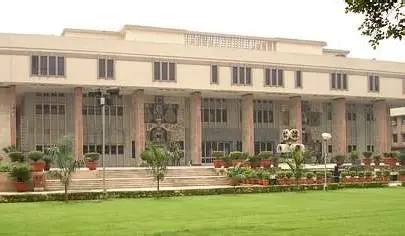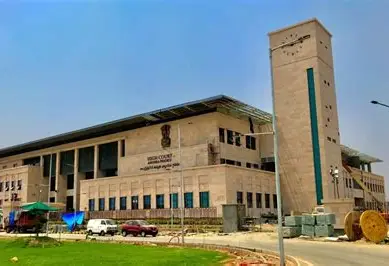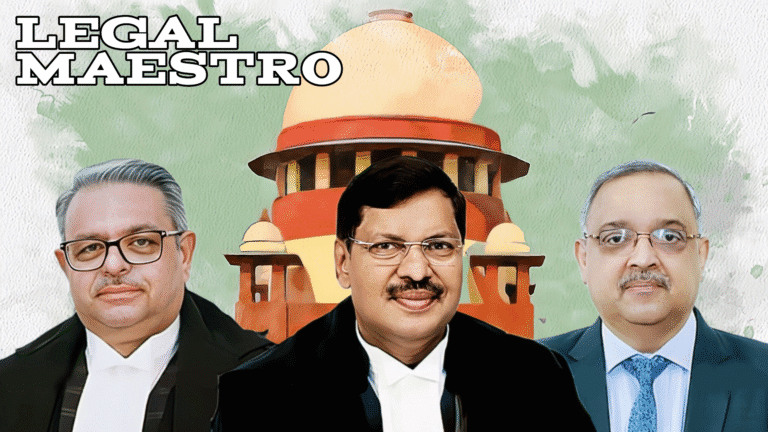
HYDERABAD: The High Court of Telangana has directed Hyderabad district collector to compensate the legal heirs of a petitioner whose land was taken by authorities illegally under the Urban Land (Ceiling and Regulation) Act, 1976. This transformative decision speaks volumes about the role of judicial enforcement and citizen rights with respect to land. After years of bureaucratic stalling and contempt for a 2009 ruling in the petitioner’s favor, the court has stepped up.
The Judgment reiterates that administrative delay cannot become a bigger right over the
entitlements under the law, in a case of an elementary right to property by preserving the faith in the enforcement of court orders without any question.
For More Updates & Regular Notes Join Our Whats App Group (https://chat.whatsapp.com/DkucckgAEJbCtXwXr2yIt0) and Telegram Group ( https://t.me/legalmaestroeducators ) contact@legalmaestros.com.
Context of the Case
The purchase of one thousand square meter land at Shaikpet, Hyderabad by the government in 1997. Having lost these documents by way of confiscation, the original petitioner has challenged the same on the ground that since the documents in question are proved as belonging to him, the same could not have been confiscated.The petitioner also succeeded before the Telangana High Court in 2009 when the High Court held that the acquisition was violative of the terms of the since-repealed Urban Land Ceiling Act.
However despite such clear order, the land was neither returned nor the petition granted compensation and this order of the court was never obeyed by the authorities. A contempt of court case was arising on this persistent dereliction in 2011, and despite some fits and starts with proceduralism, it was finally decided in 2012.
Legal Arguments and Developments
The district collector of Hyderabad submitted that the land was unobtainable, and such operational difficulties disabled payment of compensation during the pendency of the contempt
proceedingsbecause of the delay in filing or moving the contempt petition, the collector argued that the case should also be dismissed.
Justice CV Bhaskar Reddy, the judge in the case, said that such objecting reasons can’t stop alleged convicts from doing what the court tells him to do and that asking for more time in the execution is
not acceptable as a ground not to do justice. He claimed that permitting such infractions would erode public trust in the legal system.
By the Contempt of Courts Act, the court ordered the start of land acquisition procedures within six months. “The compensation was to be fixed on the basis of prevailing land acquisition laws so that the family of the deceased petitioner is not deprived of legitimate compensation.
Event Timeline
1997: The Government acquires Shaikpet land.
2009: The petitioner gets judgment in his favor from the High Court. 2011: Contempt petition was filed for non-compliance.
2012: After overcoming obstacles, the case was formally admitted. 2024: A court rules to compel compensation
Broader Significance
This one sends the message loud and clear to state officers and administrative bodies: Court orders are not to be defied and ignored as long as possible. Justice Bhaskar Reddy observed that “courts cannot be silent spectator to the disobedience of the orders” and that such an attitude strikes at the root of rule of law. It is a verdict that had set a precedent in the matter of enforcing property rights for the state of Telangana where litigations related to urban lands are going up due to haphazard
development as well as clashing claims on the ownership rights, the legal community feels. It provides further evidence why there is need for court adjudication as it was over two decades before the petitioner’s family secured a remedy; the compensation was only possible because of the court’s unwavering resolve to secure justice.
Conclusion
As is clear from a recent award of compensation to the children and heirs of a petitioner, who have been previously deprived of land, justice is within reach of the Telangana High Court descendants and successors of someone who was wrongfully dispossessed of their land.
The court reiterated that court judgments are final and uniformed authorities cannot disobey them by and that they are choses judges and state authorities would not say ‘that is not what we are going to accept’ with the authority of its contempt powers to bring up to date a 2009 judgment that has been ignored for far too long. “But not only is it a win for this affected family, it is a broader
recognition of the principle that where administrative processes constitute a threat to the rights of citizens, the courts will intervene”.





